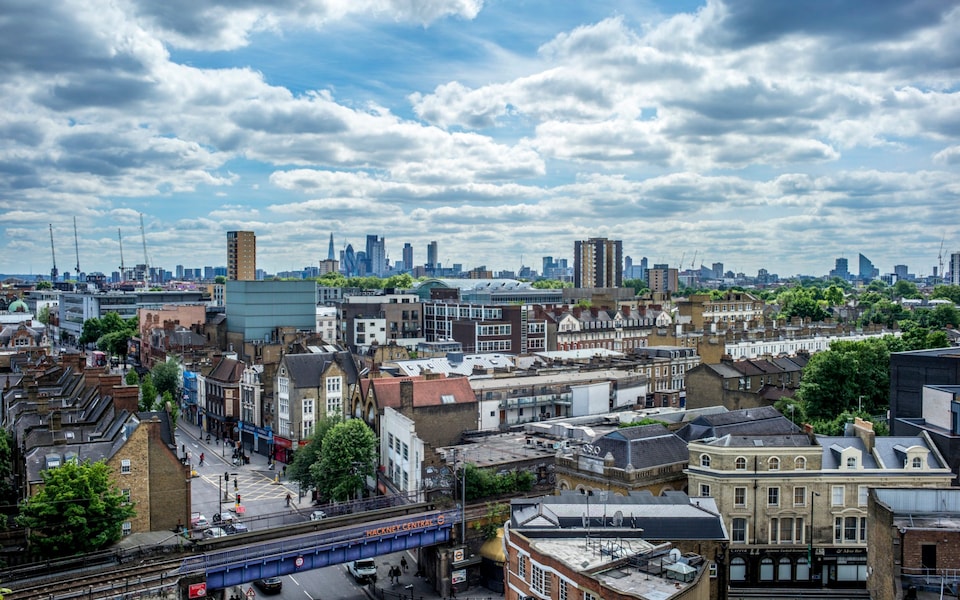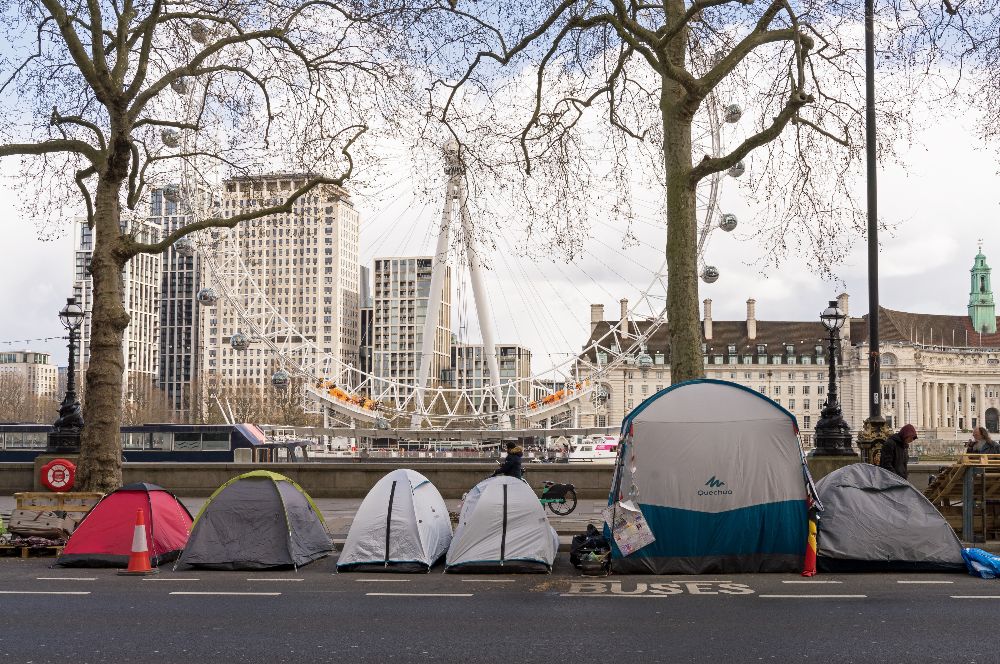As UK inflation hits, rentals in London increase and there are fewer options available.
London rents are increasing as it becomes more difficult to find cheap homes of a reasonable grade.
Tenants frequently enter into bidding wars and agree to pay several months’ rent in advance.

Living in London has come under the limelight because to a British romantic comedy series, where it can sometimes be necessary to share a property because prices have risen to virtually exorbitant levels.
The Flatshare, a whimsical narrative about two young adults sharing a rented one-bedroom apartment in London, is based on the same-named book.
While the other works nights, the former works days. They converse using Post-it notes and alternate nights in the bed.
One of the most expensive cities in the world to live in is London. Rents are rising, making it even more difficult to obtain decently priced housing.
Food and other items are becoming more expensive in the UK due to the over 10% inflation rate. The cost of energy has practically tripled.
Workers in the UK go on strike because wages aren’t keeping up with the cost of living as the country experiences its longest recession in decades.
The hardest hit are essential professions like teachers and nurses, especially in London where the average salary is over £40,000 (US$47,630), and about a third of that might be spent on rent.
The amount of rental properties expected to become available in the first nine months of 2022 decreased by almost 18% year over year, while demand increased by more than 16%, according to London real estate agency Foxtons. The average increase in rent was above 22%.
A tiny flat in the city’s capital cost an average of £340 (US$404) per week, up nearly 25% from a year earlier. Near the city center, a room can go for about £850 per week.
Flat bidding battles are frequent, and prospective tenants frequently consent to paying rent for several months in advance.
Where we once had, say, 14 requests for a home, we now have 70 or 80, according to Kristjan Byfield, co-founder of Base Property Specialists, a lettings service in London’s Shoreditch neighborhood.
He claimed that sometimes their online listings for unoccupied properties are removed in just 20 minutes because “we have already received 50 requests.”
Amina*, a single 26-year-old registered nurse, relocated to London from Nottingham in the East Midlands to take a position in the cancer ward at one of the city’s major teaching hospitals.
She now spends more than half of her weekly take-home pay of £484 on a tiny one-bedroom apartment in Croydon, a suburb of south London. She feels fortunate to have found it at such a low cost. I work night shifts.
So I really don’t want to move into a flatshare since I need to sleep whenever I can, she explained.
Most of the remaining money is consumed by council tax, electricity charges, and monthly transport expenses of £272.
Because “my parents help me as much as they can by taking me for a big shop at Costco (a discount retailer) once a fortnight,” Amina claims she has not yet turned to using food banks.
Not everybody has family that can support them.
One in 12 private renters in England, or 941,000 people, are at risk of eviction, according to a poll commissioned by the homeless charity Shelter and Nationwide Building Society.
2.4 million private renters, or 25% of all tenants, report having trouble paying their bills—a 24% increase from the previous year.
Recent studies and surveys have fueled media speculations of a migration out of London, citing factors including property costs and Covid-19, which severely damaged some industries during lockdown.
Affordable rental homes are still hard to come by in London.
According to Richard Donnell, head of research at real estate website Zoopla, “homes are being picked up quicker than new supply comes to the market, with the stock of homes for rent in London being 50% below the five year average and 20% lower across the UK.”
According to a Zoopla poll, rentals have also increased by 15.6% in Manchester, 12.3% in Birmingham, 14.1% in Glasgow, and 12.9% in Bristol.
The UK rental market doubled in size between 2001 and 2015, but growth has slowed down since then due to landlords selling and accepting capital gains to pay off debt or fund retirement, according to Donnell.
Donnell claimed that laws requiring builders to set aside a certain number of “affordable dwellings” had failed.
Developers have been able to push back on standards for affordable and social housing much too frequently and for a far too long period of time in London, according to Donnell.
“For the past 20 to 30 years, London in particular has significantly relied on foreign investors. Some buy with the idea of renting out, but a lot buy to sit on assets. Land banking is it.
According to him, the politicization of the industry hasn’t helped, and tax increases for landlords have only made matters worse.
As a result, he claimed, 29 properties each day leave the private rental market and enter the market for lucrative short-term vacation rentals like Airbnb.
“What’s disturbing is that. There is simply not enough social housing at the moment, therefore I don’t see how a rise in homelessness can be prevented,” he said.

According to Byfield, the lack of a long-term housing policy by the government is the true root of the current situation. In the previous 20 years, he noted, there had been more than 20 different housing ministers.
Multiple housing construction goals have not been reached.
Rents in England and Wales should be frozen, according to advocacy organizations including the London Renters Union and Generation Rent. Most rents in Scotland have been frozen until the end of March 2023.
In addition to having to deal with rising energy and food costs, private renters in England could become impoverished, according to Generation Rent deputy director Dan Wilson Craw.
“During this time of severe inflation, the government could step in and freeze rents, keeping thousands of people safe in their homes and preventing them from going hungry.”
The British government opposes rent regulation because it will reduce industry investment.




